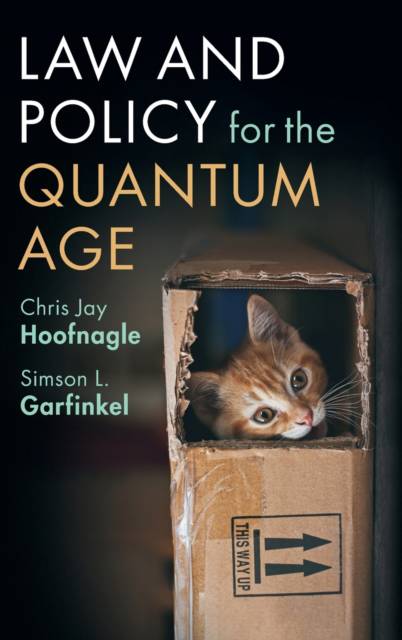
Je cadeautjes zeker op tijd in huis hebben voor de feestdagen? Kom langs in onze winkels en vind het perfecte geschenk!
- Afhalen na 1 uur in een winkel met voorraad
- Gratis thuislevering in België vanaf € 30
- Ruim aanbod met 7 miljoen producten
Je cadeautjes zeker op tijd in huis hebben voor de feestdagen? Kom langs in onze winkels en vind het perfecte geschenk!
- Afhalen na 1 uur in een winkel met voorraad
- Gratis thuislevering in België vanaf € 30
- Ruim aanbod met 7 miljoen producten
Zoeken
€ 136,95
+ 273 punten
Uitvoering
Omschrijving
It is often said that quantum technologies are poised to change the world as we know it, but cutting through the hype, what will quantum technologies actually mean for countries and their citizens? In Law and Policy for the Quantum Age, Chris Jay Hoofnagle and Simson L. Garfinkel explain the genesis of quantum information science (QIS) and the resulting quantum technologies that are most exciting: quantum sensing, computing, and communication. This groundbreaking, timely text explains how quantum technologies work, how countries will likely employ QIS for future national defense and what the legal landscapes will be for these nations, and how companies might (or might not) profit from the technology. Hoofnagle and Garfinkel argue that the consequences of QIS are so profound that we must begin planning for them today. This title is available as Open Access on Cambridge Core.
Specificaties
Betrokkenen
- Auteur(s):
- Uitgeverij:
Inhoud
- Aantal bladzijden:
- 600
- Taal:
- Engels
Eigenschappen
- Productcode (EAN):
- 9781108835343
- Verschijningsdatum:
- 6/01/2022
- Uitvoering:
- Hardcover
- Formaat:
- Genaaid
- Afmetingen:
- 152 mm x 229 mm
- Gewicht:
- 966 g

Alleen bij Standaard Boekhandel
+ 273 punten op je klantenkaart van Standaard Boekhandel
Beoordelingen
We publiceren alleen reviews die voldoen aan de voorwaarden voor reviews. Bekijk onze voorwaarden voor reviews.









